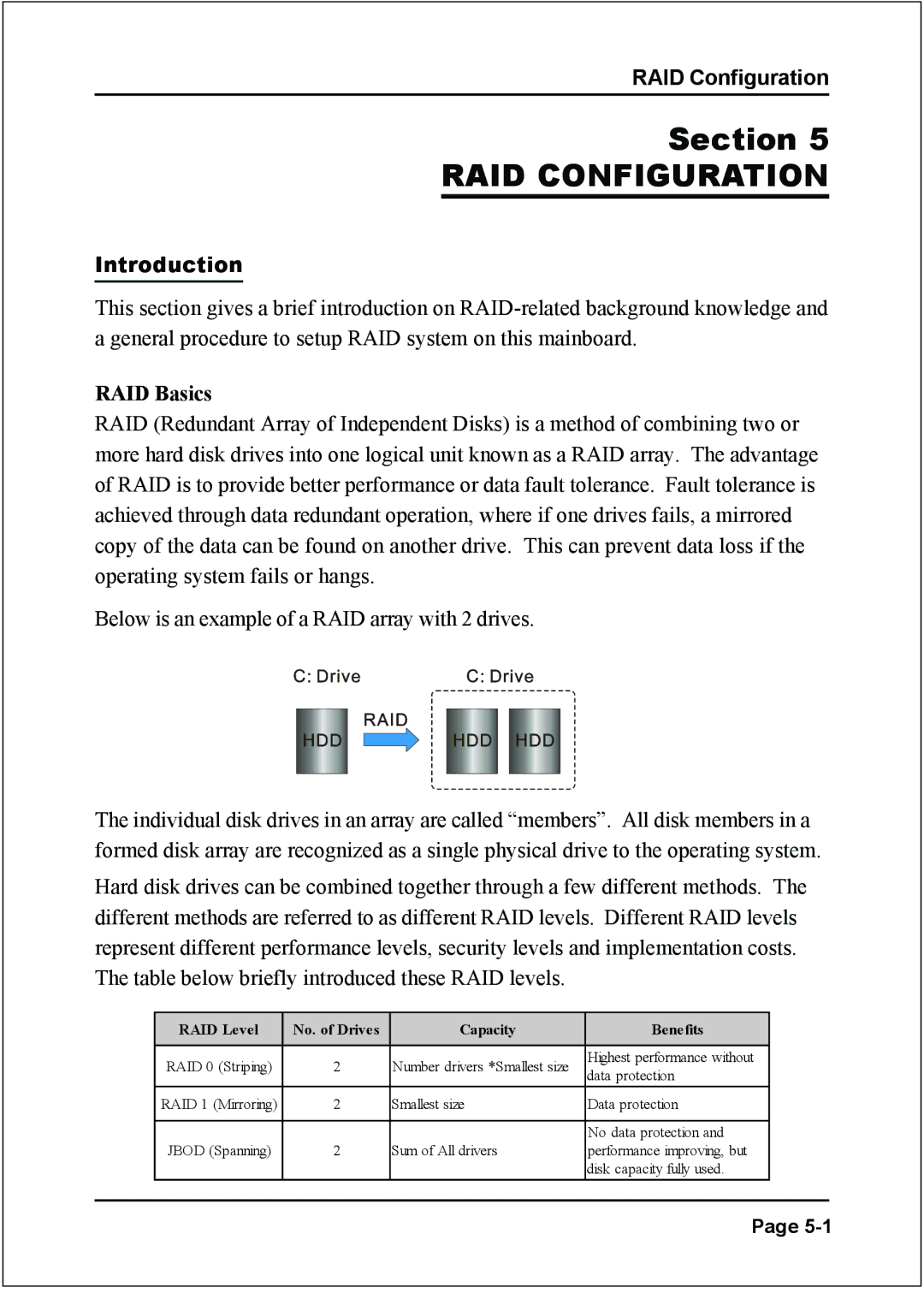
RAID Configuration
Section 5
RAID CONFIGURATION
Introduction
This section gives a brief introduction on
RAID Basics
RAID (Redundant Array of Independent Disks) is a method of combining two or more hard disk drives into one logical unit known as a RAID array. The advantage of RAID is to provide better performance or data fault tolerance. Fault tolerance is achieved through data redundant operation, where if one drives fails, a mirrored copy of the data can be found on another drive. This can prevent data loss if the operating system fails or hangs.
Below is an example of a RAID array with 2 drives.
The individual disk drives in an array are called “members”. All disk members in a formed disk array are recognized as a single physical drive to the operating system.
Hard disk drives can be combined together through a few different methods. The different methods are referred to as different RAID levels. Different RAID levels represent different performance levels, security levels and implementation costs. The table below briefly introduced these RAID levels.
| RAID Level | No. of Drives | Capacity | Benefits |
|
| RAID 0 (Striping) | 2 | Number drivers *Smallest size | Highest performance without |
|
| data protection |
| |||
|
|
|
|
| |
| RAID 1 (Mirroring) | 2 | Smallest size | Data protection |
|
|
|
|
|
|
|
|
|
|
| No data protection and |
|
| JBOD (Spanning) | 2 | Sum of All drivers | performance improving, but |
|
|
|
|
| disk capacity fully used. |
|
|
|
|
|
|
|
Page
